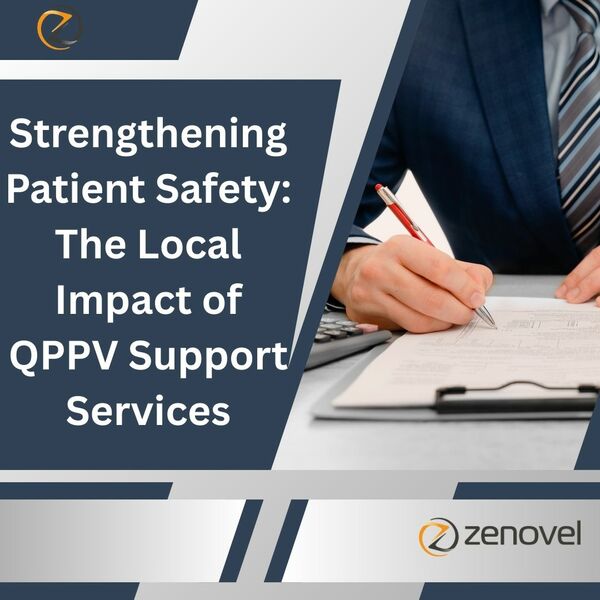Notifications
ALL BUSINESS
COMIDA
DIRECTORIES
ENTERTAINMENT
FINER THINGS
HEALTH
MARKETPLACE
MEMBER's ONLY
MONEY MATTER$
MOTIVATIONAL
NEWS & WEATHER
TECHNOLOGIA
TV NETWORKS
VIDEOS
VOTE USA 2026/2028
INVESTOR RELATIONS
DEV FOR 2025 / 2026
ALL BUSINESS
COMIDA
DIRECTORIES
ENTERTAINMENT
FINER THINGS
HEALTH
MARKETPLACE
MEMBER's ONLY
MONEY MATTER$
MOTIVATIONAL
NEWS & WEATHER
TECHNOLOGIA
TV NETWORKS
VIDEOS
VOTE USA 2026/2028
INVESTOR RELATIONS
DEV FOR 2025 / 2026

While global safety products and overarching safety guidelines provide the foundational framework for pharmacovigilance, it is the localized implementation through services like local Qualified Person for Pharmacovigilance (QPPV) support that directly impacts patient safety at the ground level. These services ensure that global safety principles are effectively translated and applied within specific cultural and healthcare contexts, ultimately contributing to the safer use of medicines for patients in those regions.
Local QPPVs play a crucial role in ensuring that safety information reaches healthcare professionals and patients in a clear, understandable, and culturally appropriate manner. They oversee the translation and adaptation of safety labels, patient information leaflets, and other risk communication materials, ensuring that the language and content resonate with the local population. This linguistic and cultural sensitivity is paramount in conveying important safety messages effectively and empowering patients to use their medications safely.
Furthermore, local QPPV support enhances the collection and understanding of local adverse event data. By being embedded within the local healthcare system, they can build relationships with healthcare professionals and gain a deeper understanding of local reporting practices and potential biases. This localized perspective can lead to a more comprehensive and nuanced understanding of the safety profile of pharmaceutical products within that specific market. They can also actively engage in local pharmacovigilance initiatives and contribute to the improvement of adverse event reporting systems.
The proactive safety measures facilitated by local QPPVs also contribute significantly to patient well-being. They can identify emerging local safety signals that might be missed by a centralized global system and initiate prompt investigations and risk mitigation strategies tailored to the local context. This early detection and intervention can prevent potential harm to patients and ensure that appropriate safety measures are implemented swiftly.
Moreover, local QPPVs are instrumental in facilitating effective communication during safety alerts or recalls. Their understanding of local communication channels and their established relationships with local health authorities enable them to disseminate critical safety information rapidly and efficiently to healthcare professionals and the public. This timely communication is crucial in minimizing potential harm and ensuring patient safety during critical situations.
In essence, local QPPV support services are not just about regulatory compliance; they are fundamentally about strengthening patient safety. By providing localized expertise in risk communication, adverse event monitoring, and proactive safety management, these services ensure that global safety standards translate into tangible benefits for patients in specific regions, ultimately fostering a safer healthcare environment for all.
read also: https://zenovel.com/

Comments